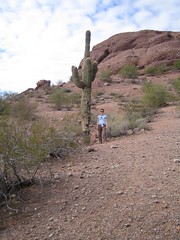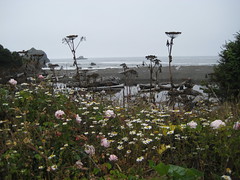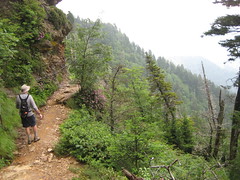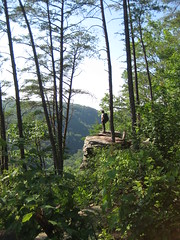Last time I checked in on my
project to read the top ten translated books of 2008, I had three books down. Five more I finished within a couple of weeks, leaving two. One of those I had tried, and finally decided life was too short to spend that bored (
Voice Over by Celine Curiol). The final one has been sitting on my shelf. It was good, but not light, and I hadn't gotten around to it in part because it was a loan from a friend rather than the library. Now I am finished, or finished with the nine I am ever going to read, and so here are mini reviews.
Of course, while these books may have been shortlisted as for best
novel, what is really meant is
literary novel. There's nothing light and fluffy about them.
The Darkroom of Damocles by Willem Frederick Hermans is the story of a man who may or may not be a Dutch resistance fighter during World War II. He may be deluded and actually harming the resistance's cause, or he may be a hero whose contact in the resistance has disappeared. Either way, he is an unlikable character who does some very bad things that are not related to the war. (I'm being vague to avoid spoilers, but let's put the emphasis on
very. He's not pilfering gumballs from the five and dime.) The author manages to achieve the right balance of distance from our main character - no matter how close we get we can't be sympathetic, yet we are right there with him - or at least there as he believes it to be, which may not be reality. The plot of course is unusual; most stories of World War II that take place in Europe are either about victims or about heroes.
Unforgiving Years by Victor Serge is a tough read; it's the one I just finished. Serge was Russian but wrote in French, and his novels are highly political. In this case, the political shades over into the philosophical. It's the story of several people who are agents for Communist Russia in other parts of the world. Like the previous book, the question of whether one is on the right side or not is asked, yet it is not quite the same situation. The characters know exactly who they work for; the question is whether the organization is still dedicated to the cause or whether it has become overzealous and power-hungry. Given that this is Stalinist Russia, the answer is fairly obvious. But what does one do? To defect is not only risky but it cuts one off from the central purpose of one's life; to remain is morally compromising; to become an active communist separate from the organization is suicidal.
Yalo is psychological rather than philosophical. Like
Darkroom, it involves a character for whom it is difficult to determine the truth. In Frederick's novel, though, the main character knows what he thinks - he may be delusional (or not), but he believes in his version of reality. Yalo, instead, is a man who does not know what he thinks or feels, who even has trouble knowing what he remembers. It "revolves around a single consciousness unable to make sense of it or its surroundings." For most of us, consciousness is a coherent experience (even if that coherence is an illusion); for Yalo consciousness is fragmented and indeterminate. In this story Yalo, our main character, has done things more senseless and awful than in the above two books, and the world has treated him in the same way. Yalo is not fully human, in a sense, and how does one respond to someone - or punish them - if they are not?
Senselessness by Horacio Castellanos Moya is on the shorter side and written in long sentences, long paragraphs that are almost stream-of-consciousness. The narrator is a rather paranoid young man hired to copy edit a 1000-page manuscript of atrocities, and he is also - pardon the language, gentle reader - to use the current slang, something of a douchebag. You can't really like the narrator, and this dislike is possible, perhaps, because he is just another self-centered, shallow guy. In other words, you can feel free to dislike him without fear of reprisal. (Yes; I disliked him more that the morally compromised characters discussed above.) I didn't feel like there was much to this book, or understand why it made the shortlist. It wasn't bad; it just wasn't great.
The Post-Office Girl by Stefan Zweig is about a young German woman who lives a narrow, impoverished life, working in the post office. Then suddenly her aunt invites her to stay in her glittering world of wealth for a while and she - not entirely honestly - reinvents herself. When she has to go home again, she can't adjust, and she eventually meets another young man with similar difficulties. They feed off of each other's unhappiness and eventually plan a future together - not one of hope. The book was easy to read without being shallow or glib, and rather fun in spite of its dark tones. Perhaps it was simply "fun" in comparison to the other books! But Zweig's writing is, frequently, light rather than ponderous.
And then there is Alejandro Zambra's
Bonsai, which is short and easy reading. The reviews of this novella I saw are all raves, and I just don't get their enthusiasm. I found the book uninteresting and unmemorable, and I really have nothing at all to say about it.
So, that's it for 2008. I may do this again next year.





















